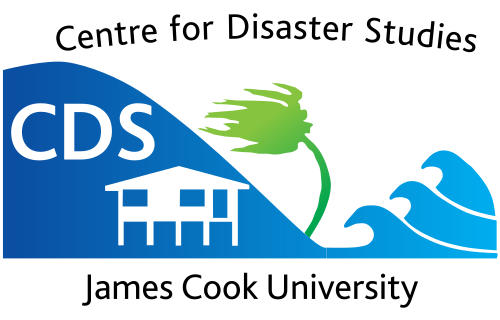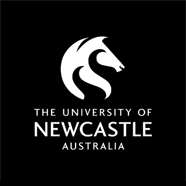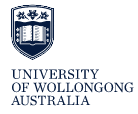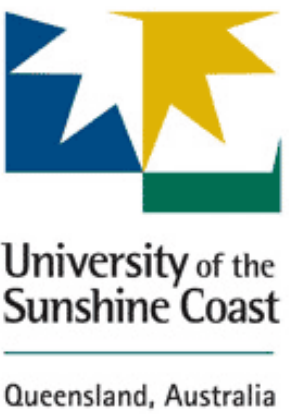Australia
 |
Fenner School of Environment and Society
|
| Outline There are few places in the world where economists, hydrologists, historians, ecologists, foresters, geographers and climatologists all work together seeking solutions to some of contemporary society's most significant challenges. The Australian National University's Fenner School of Environment and Society is one such place and provides a forum for the rigorous exploration of diverse ideas, perspectives, and methods of identifying and solving problems at the interface of the natural and social sciences, including the humanities, as they apply to the environment and sustainability. Fenner offers expert perspectives on complex environmental and sustainable development challenges, drawing on decades of quality empirical and applied research. Research focuses on understanding environmental changes across a range of scales in time and place, enabling the school to provide past, present and future narratives to guide science, policy and management. Of particular importance to us is our capacity to encourage sound policy and governance outcomes that support sustainability. |
|
 |
Humanitarian, Emergency and Disaster Management Studies
|
| Outline The Humanitarian, Emergency and Disaster Management Studies (HEDM) program at the Charles Darwin University (CDU) delivers advanced, globally competitive knowledge and practical skills to students from a wide range of professional and academic backgrounds. The program is situated at the door-step of the Asia-Pacific, the most disaster-prone region in the world. Through our degree programs and research, students learn how to approach disaster, emergency and community risks holistically. Teaching is informed by CDU's strong relationships with nationally and internationally respected industry and research partners. Interactive lectures are delivered by some of the world's leading experts in the discipline. Most of the courses are available in-campus and online. HEDM offers an interdisciplinary research program that deals with human dimensions of natural hazards, disaster and environmental risks and climate change adaptation. The potential research supervisors are world-class scholars in their field of research. Higher Degree by Research (HDR) at the Charles Darwin University covers the degrees of Masters by Research (MRes) and Doctor of Philosophy (PhD). HDR students engage in a supervised research project that demonstrates their ability to make a contribution to knowledge in a chosen field of study. [detail] --> |
|
 |
Centre for Disaster Studies
|
| Outline The Centre for Disaster Studies is a multi-disciplinary research unit within the College of Science and Engineering at James Cook University. The Centre has acted as the university's face to the public and the professionals in the Emergency Management and Meteorology fields, city councils and other researchers since its establishment in 1979. Members have extensive research expertise, field work experience and professional teaching capacity in community based disaster management (all hazards). Academic research members have a strong foundation in the following research areas (both domestic and international): - Integrated disaster risk reduction and climate change adaptation - Land use planning for disaster risk reduction (DRR) and climate change - Building resilience in the built, natural and social environment - Tourism crisis and disaster management - Vulnerability and capacity assessment (community mapping for DRR and recovery) - Social network analysis for disaster governance, risk reduction and resilience - Post disaster assessment for response and recovery - Sustainable development/redevelopment and livelihoods Affiliate members of the Centre also conduct relevant research in the fields of engineering, public health, nursing, journalism/media, psychology, education, anthropology, human geography and the broader social sciences. The Centre has extensive experience in the translation of research and science into effective policy recommendations and action. Full reports and publications available at : [detail] --> |
|
 |
Humanitarian Engineering Lab
|
| Outline RMIT University (officially the Royal Melbourne Institute of Technology), is a public research university in Melbourne, Australia. It is a global university with campuses in Australia, Vietnam and Spain. It offers a number of programs through partners in Singapore, Hong Kong, mainland China, Indonesia, Sri Lanka, India, Belgium, Germany, Austria and the Netherlands. It collaborates with communities and universities in the Asia-Pacific and other regions through the Disaster Research Network. RMIT's Disaster Research Network addresses the increasing need for research, innovation, and partnership to support disaster prevention, preparedness, response, and recovery in Australia and internationally. Drawing together over 80 researchers from a broad range of disciplines, the RMIT Disaster Research Network takes a multi-disciplinary approach to disaster research, working together with practitioners and communities to strengthen resilience and research impact. The Network provides our partners with easy access to research expertise and opportunities to collaborate. The Network also enables a coordinated and timely response to calls for research capability and facilitates industry-academia events. Affiliate members of the Centre also conduct relevant research in the fields of engineering, public health, nursing, journalism/media, psychology, education, anthropology, human geography and the broader social sciences. The Centre has extensive experience in the translation of research and science into effective policy recommendations and action. Full reports and publications available at : [detail] --> |
|
 |
Centre for Infrastructure Performance and Reliability (CIPAR)
|
| Outline The Centre for Infrastructure Performance and Reliability (CIPAR) is at the international forefront in assessing the reliability, safety, durability and management of buildings, bridges, pipelines, aviation, and other infrastructure systems. The pioneering research at CIPAR includes risk and reliability assessment, corrosion of infrastructure, and structural masonry. The Centre for Infrastructure Performance and Reliability (CIPAR) comprises the following areas of international research strength:
[detail] --> |
|
 |
GeoQuEST
|
| Outline The GeoQuEST Research Centre represents an interdisciplinary team from the Faculty of Science, Medicine and Health and the Faculty of Engineering and Information Sciences that have a focus on environmental and climate change research under the overall theme of Earth System Science and Technology. The centre brings together outstanding researchers studying the atmosphere, earth and water within the broad disciplines of geography, geology, environmental science and environmental engineering who share interests in environmental processes and climate change. [detail |
|
 |
Sustainability Research Centre
|
| Outline While USC was initially established as primarily a regional teaching university for undergraduates, it is now evolving into a targeted research university. The recent appointment of Professor Roland De Marco as USC's first Pro Vice-Chancellor of Research, underlined the university's commitment to supporting excellence in research. Three Research Centres now exist as focal points at USC: GeneCology Research Centre; Forest Industries Research Centre; and Sustainability Research Centre. Additionally, several other research clusters or themes have developed and new ones are emerging. Through these focal points, USC maintains research collaborations worldwide with a strong emphasis in the Asian-Pacific region. USC has recently enhanced its research profile through the recruitment of outstanding researchers and up-to-date infrastructure. The Sustainability Research Centre (SRC) was formalised as one of the University of the Sunshine Coast's flagship research concentrations in September 2007. In 2012 the SRC was also designated as a Tier 1 Research Centre, one of only three in the university. Within the past year, the SRC has made two critical research-based hires in geosciences (Professors Patrick Nunn and Roy C. Sidle) to increase its visibility and profile in biophysical sciences to complement the strong faculty counterpart in social sciences. The SRC has the capacity to attract top-level Honours students from various faculties and support post graduate students as well as Research Fellows. The SRC offer both undergraduate majors and minors in Sustainability and a Ph.D. by research in Sustainability. The core focus of the sustainability educational programs aligns with the social, behavioural, biophysical, and economic sciences. In addressing concerns of society and the environment, this important transdisciplinary research area offers a broad spectrum of opportunity.
[detail] --> |
|
 |
Queensland University of TechnologyBrisbane Contact Person: Prof. Ashantha Goonetilleke |
| Outline We are a team of academics who are actively engaged in research, teaching, and professional service across sub-disciplines of civil engineering. We have strong connections to the community of practising civil engineers, as well as leadership roles within the international academic community. Our researchers are involved in cutting-edge research programs, topics and projects across all of our sub-disciplines. Our research has made significant contributions to QUT's Excellence in Research for Australia (ERA) ratings. We received a 4 (above world standard) in environmental engineering, and a 3 (at world standard) for civil engineering. [detail] -->ERA (Excellence in Research for Australia) |
|
Humanitarian and Development Research Initiative, Western Sydney UniversityPenrith, NSW Contact Person: Prof. Nichole Georgeou |
|
| Outline Western's School of Social Sciences and Psychology is home to expertise in disaster preparedness, response and management through its Humanitarian and Development Research Initiative (HADRI). HADRI research in this area examines public policy, international standards and scholarly research within the disaster management sector. The DRM theme has a particular focus on ethics and accountability, specifically the factors that govern their translation into organisational philosophies and implementation as operational outcomes achieved with affected communities. DRM also informs disaster epidemiology work within the HADRI team, including population health and mental health effects of disasters and both the research and policy frameworks which support effective linking of relief, rehabilitation and development (LRRD) programs. [detail] --> |
|






